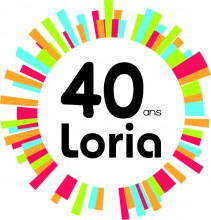Pour clôturer le colloquium organisé à l’occasion de ses 40 ans, le Loria met les bouchées doubles en accueillant deux grands noms de l’informatique : Sander Dieleman à 11h et Leslie Valiant à 13h30, dans l’amphithéâtre du Loria.
Sander Dieleman a effectué son doctorat au Reservoir Lab de l’Université de Gand, en Belgique. Il est aujourd’hui chercheur au Google Deepmind, à Londres. Ses sujets de recherche sont l’apprentissage profond, le MIR (Music Information Retrieval), les systèmes de recommandations et le filtrage collaboratif, et les réseaux de neurones.
Informaticien théorique britannique, Leslie Valiant a été primé de nombreuses fois : il a notamment reçu le Prix Turing en 2010. Il enseigne à Harvard depuis 1982, et est le titulaire de la chaire Thomas Jefferson Coolidge en informatique théorique et mathématiques appliquées de la faculté d'ingénierie et de sciences appliquées (Harvard School of Engineering and Applied Sciences). Sander Dieleman – 11hTitle: Deep learning for music, galaxies and plankton Abstract: In recent years, deep learning has become a popular approach for speech and image recognition, and its application has substantially improved recognition systems in these domains. In this talk we'll explore three different applications of deep learning: audio-based music recommendation, galaxy morphology classification and plankton species classification. We'll take a closer look at solutions for these problems based on convolutional neural networks, two of which have been used to win Kaggle competitions. Leslie Valiant : 13h30Title: What can be automated: A Viewpoint from Learning and Evolution Abstract: With machine learning technology we are now able to automate many tasks that humans learn to perform through experience rather than through step-by-step instruction. Without such a learning capability we are limited to automating tasks for which a step-by-step sequence of instructions is known. In this talk we shall ask whether it is possible to circumscribe the set of tasks that we can expect to effectively automate. The discussion will start from the hypothesis that all the information that resides in living organisms was initially acquired either through learning by an individual or through evolution. Then any unified theory of evolution and learning should be able to characterize the capabilities that humans and other living organisms can potentially acquire and perform. These tasks then comprise feasible targets for automation. We shall discuss where we are with such a unified theory. Inscription pour les personnes extérieures au laboratoire : marie.baron[@]loria.fr

